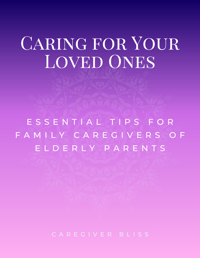Caring for a loved one is a noble and often rewarding responsibility, but it can also come with its own set of challenges. Many family caregivers find themselves facing not only the physical demands of caregiving but also the emotional toll it can take. In some cases, this emotional strain can lead to a condition known as Family Caregiver PTSD.
In this article, we'll explore what Family Caregiver PTSD is, its potential risk factors, and ways to cope.
Understanding Family Caregiver PTSD
Family Caregiver PTSD, or post-traumatic stress disorder, is a mental health condition that can develop in individuals who have experienced or witnessed traumatic events. While we often associate PTSD with combat veterans, caregivers can also be susceptible to its effects. The chronic stress, emotional burden, and constant demand for care can create an environment where caregivers are at risk of developing PTSD.
Potential Risk Factors
- Extended Periods of Stress: Family caregivers often face prolonged periods of stress due to the continuous nature of caregiving responsibilities. This ongoing pressure can contribute to the development of PTSD.
- Witnessing Suffering: Caregivers may witness their loved one's physical and mental decline, which can be emotionally distressing. Constant exposure to suffering can contribute to the development of PTSD symptoms.
- Lack of Support: Caregivers who lack a strong support system may be more vulnerable to PTSD. Feeling isolated and overwhelmed can exacerbate the emotional toll of caregiving.
- Personal Trauma History: Individuals with a history of trauma or pre-existing mental health conditions may be at a higher risk of developing caregiver PTSD.
Recognizing PTSD Symptoms
It's essential for family caregivers to be aware of potential symptoms of PTSD, which may include:
- Flashbacks or intrusive memories of traumatic events
- Avoidance of reminders of the trauma
- Difficulty concentrating or sleeping
- Feelings of numbness or detachment
- Irritability and heightened anxiety
If caregivers notice these symptoms persisting over time, seeking professional help is crucial.
Coping Strategies
- Prioritize Self-Care: Caregivers must prioritize their own well-being. Taking breaks, getting adequate rest, and engaging in activities that bring joy can help reduce stress.
- Seek Support: Establish a strong support system by reaching out to friends, family, or support groups. Sharing experiences and feelings with others who understand can be immensely beneficial.
- Professional Help: If symptoms persist or worsen, seeking professional help from a therapist or counselor is essential. They can provide coping strategies and support tailored to individual needs.
- Educate Yourself: Understanding PTSD and its potential impact on caregivers can empower individuals to recognize early warning signs and take proactive steps toward mental well-being.
Conclusion
Family caregivers play a crucial role in providing love and support to their loved ones, but it's equally important for them to care for themselves. Recognizing the potential risk of Family Caregiver PTSD and taking steps to mitigate these risks is crucial for maintaining mental health. By prioritizing self-care, seeking support, and being aware of PTSD symptoms, caregivers can navigate the challenges of caregiving with resilience and strength. Remember, seeking help is a sign of strength, not weakness.
Have you or someone you know experienced the challenges of being a family caregiver? Share your thoughts, experiences, and any additional tips you may have for coping with the emotional toll of caregiving in the comments below. Your insights could provide valuable support and encouragement to others facing similar situations. Let's create a community of understanding and resilience for family caregivers!
Free Guide:
Caring For Your Loved Ones
 Attention family caregivers! Are you struggling to provide the best care for your aging parents? Don't worry, we've got you covered.
Attention family caregivers! Are you struggling to provide the best care for your aging parents? Don't worry, we've got you covered.
Download our free guide, Caring for Your Loved Ones: 10 Essential Tips for Family Caregivers of Elderly Parents, and unlock the secrets to becoming an exceptional caregiver.
From adapting the home environment to promoting independence, this invaluable resource will transform your caregiving experience into a more rewarding journey. Don't wait—give your loved ones the care they deserve, and download your free copy today!

